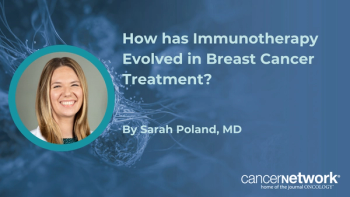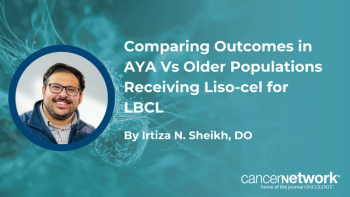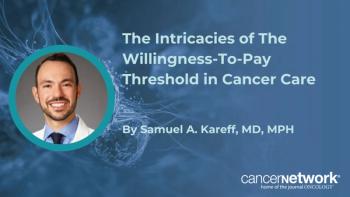
Miami Breast Cancer Conference® Abstracts Supplement
- 41st Annual Miami Breast Cancer Conference® - Abstracts
- Volume 38
- Issue 4
- Pages: 30-31
28 Enhancing the Interpretation of Real-World Quality of Life (QoL) in Patients With Hormone Receptor– Positive/Human Epidermal Growth Factor Receptor 2–Negative (HR+/HER2-) Advanced Breast Cancer (ABC) Enrolled in the POLARIS Trial
Background
The POLARIS trial is a prospective, observational real-world study of patients with hormone receptor-positive (HR+)/HER2-negative (HER2–) advanced breast cancer receiving palbociclib in routine clinical practice. We have previously shown that palbociclib treatment did not have any significant adverse impact on patient quality of life (QOL) when assessed by the EORTC-QLQ-C30 questionnaire, consistent with published clinical trial findings. To enhance interpretation, EORTC scores were characterized into terms that are meaningful to patients, physicians, and other stakeholders, based on published clinical problem thresholds.
Methods
EORTC data were collected at baseline, monthly for the first 3 months, and every 3 months thereafter until palbociclib discontinuation. Response options for each EORTC question (1 = very poor to 7 = excellent) were grouped into “favorable” (taking a conservative approach of using only responses 5, 6, or 7) and “not favorable” (response of 4 or less) for the 2 items on global health status/QOL. The proportion of patients with favorable or not favorable responses was compared between subgroups (line of therapy, age, race, bone-only metastases, visceral metastases, and dose modification) at time points baseline, months 6, 12, and 18 using the Fisher exact test.
Results
Between January 2017 and December 2018, 1285 patients were enrolled, 1250 of whom received 1 or fewer palbociclib doses. EORTC Q29 ‒ Overall Health completion rates were 1167/1250 (93.4%) at baseline, 732/1250 (58.6%) at month 6, 484/1250 (38.7%) at month 12, and 353/1250 (28.2%) at month 18. The proportion of patients with a favorable response for EORTC Q29 was consistently higher than the proportion with a nonfavorable response (baseline, 56.1% vs 43.9%; month 6, 69.3% vs 30.7%; month 12, 68.6% vs 31.4%; and month 18, 70.0% vs 30.0%). When analyzed by subgroup, no significant differences (P <.05) were observed in the proportion of patients with a favorable response for any subgroup covariate, except for age at baseline; however, this significance was not observed at months 6, 12, or 18. Similar results were observed for EORTC Q30 – Overall QOL (data not shown).
Conclusions
The proportion of patients indicating a favorable response in the EORTC questionnaire Overall Health and Overall QOL questions increased or were maintained in patients with HR+/HER2– advanced breast cancer treated with palbociclib from baseline through to month 18 overall and across all evaluated subgroups. It is important to note that these data are conditional on the patients who responded to the questions, whose numbers diminished over time.
Articles in this issue
Newsletter
Stay up to date on recent advances in the multidisciplinary approach to cancer.













































